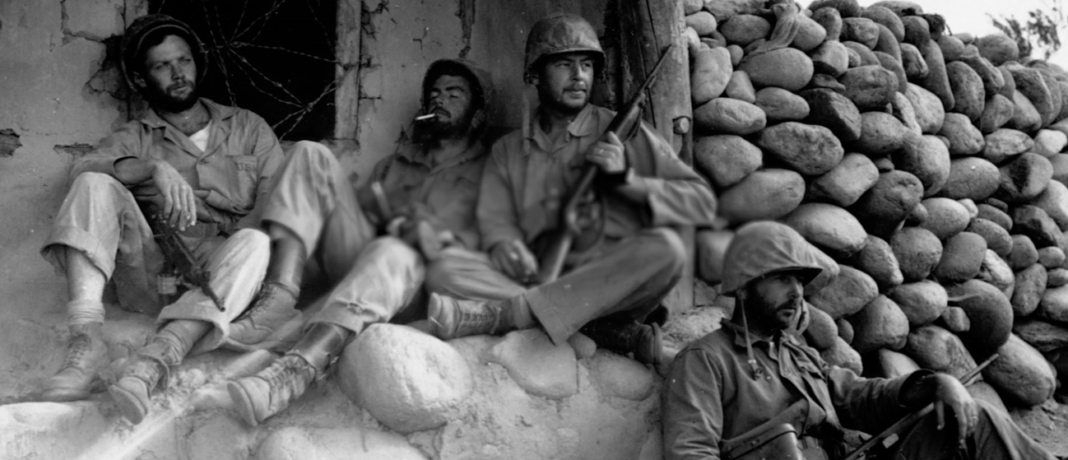Nkoane Sekhofa
In recent months, Lesotho has witnessed a concerning trend: the increasing involvement of the military in political and civil affairs. This development threatens to undermine the democratic principles that the nation has worked so hard to uphold.
The recent events surrounding Prime Minister Matekane’s government, including the controversial secondment of a military officer to head the Directorate on Corruption and Economic Offences (DCEO), have raised alarm bells about the militarisation of the state.
It is imperative that Lesotho reaffirms its commitment to democratic processes and ensures that the military remains confined to its constitutional role, refraining from encroaching on the political and civil space.
The involvement of the military in political matters is a slippery slope that can lead to the erosion of democratic institutions. In October 2023, when members of parliament were mulling toppling Prime Minister Matekane through a democratic process of a vote of no confidence, the heads of the army, police, and national security service (Lesotho Mounted Police Service Commissioner Holomo Molibeli, Lesotho Defence Force Commander Lieutenant General Mojalefa Letsoela and National Security Service Director General Pheello Ralenkoan) publicly declared their opposition to the move.
While their intention may have been to maintain stability, their intervention set a dangerous precedent. It signalled that the military could influence political outcomes, thereby undermining the sovereignty of parliament and the will of the people.
Now, with the appointment of a military officer to lead the DCEO, the Matekane government risks further entrenching the military’s role in governance. The DCEO is a critical institution in the fight against corruption, and its independence is paramount to its effectiveness.
By placing a military figure at its helm, the government risks politicising the institution and eroding public trust in its ability to operate impartially. This move undermines the fight against corruption in Lesotho and blurs the lines between civilian and military authority.
Why would Matekane replace Molelle with a soldier? Does he no longer trust a civilian lawyer as has been tradition? Does he now feel the need to share the DCEO with Letsoela who remains the commander of the soldier to head the DCEO?
Lesotho’s democracy is built on the principles of transparency, accountability, and the rule of law. These principles can only be upheld if democratic processes are allowed to function without interference from the military or any other external forces. The attempted vote of no confidence, while controversial, was a legitimate political manoeuvre within the framework of Lesotho’s democratic system. The military’s intervention in this process was a clear overreach and a threat to the separation of powers.
Prime Minister Matekane’s government must recognise that its legitimacy derives from the democratic mandate given by the people, not from the support of the military. By keeping the military too close, the government risks being perceived as relying on military strength to maintain power.
This perception can lead to widespread disillusionment among the population and undermine the government’s credibility.
In a democratic society, the military’s role is to protect the nation from external threats and to support civilian authorities in times of crisis. It is not the military’s place to intervene in political processes or to influence the functioning of civilian institutions. The military must remain apolitical and subordinate to civilian authority, as enshrined in Lesotho’s constitution.
The recent actions of the Matekane government, however, suggest a troubling shift towards militarisation. By seconding a military officer to head the DCEO, the government is effectively allowing the army to run a civilian institution. This move not only undermines the independence of the DCEO but also sets a dangerous precedent for the militarisation of other state institutions.
To safeguard Lesotho’s democracy, it is crucial that the Matekane government takes immediate steps to demilitarise the state. This includes ensuring that key institutions such as the DCEO are led by civilian officials with the necessary expertise and independence to carry out their mandates effectively.
The government must also reaffirm its commitment to the rule of law and the separation of powers, ensuring that the military remains within its constitutional boundaries.
Furthermore, the government should engage in dialogue with all stakeholders, including civil society, political parties, and the international community, to reinforce the importance of democratic processes and practices. By doing so, Lesotho can send a clear message that it remains committed to democracy and the rule of law.
Lesotho stands at a crossroads. The increasing militarisation of the state poses a significant threat to the nation’s democratic institutions and processes. Prime Minister Matekane’s government must take decisive action to demilitarize the state and reaffirm its commitment to democracy.
The military must refrain from encroaching on the political and civil space, and the government must ensure that democratic processes are allowed to prevail. Only by upholding these principles can Lesotho secure a stable and prosperous future for its people.
Democracy is not just a system of governance; it is a promise to the people that their voices will be heard and their rights protected. Lesotho must honour this promise by keeping the military in its rightful place and allowing democracy to flourish.
Summary
- The recent events surrounding Prime Minister Matekane’s government, including the controversial secondment of a military officer to head the Directorate on Corruption and Economic Offences (DCEO), have raised alarm bells about the militarisation of the state.
- It is imperative that Lesotho reaffirms its commitment to democratic processes and ensures that the military remains confined to its constitutional role, refraining from encroaching on the political and civil space.
- In October 2023, when members of parliament were mulling toppling Prime Minister Matekane through a democratic process of a vote of no confidence, the heads of the army, police, and national security service (Lesotho Mounted Police Service Commissioner Holomo Molibeli, Lesotho Defence Force Commander Lieutenant General Mojalefa Letsoela and National Security Service Director General Pheello Ralenkoan) publicly declared their opposition to the move.

Your Trusted Source for News and Insights in Lesotho!
At Newsday Media, we are passionate about delivering accurate, timely, and engaging news and multimedia content to our diverse audience. Founded with the vision of revolutionizing the media landscape in Lesotho, we have grown into a leading hybrid media company that blends traditional journalism with innovative digital platforms.










